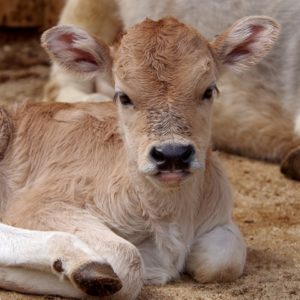 By Chris Forcherio
By Chris Forcherio
Have you defined what success and failure look like in your weaning program?
Success might look like live, healthy calves who put on weight with minimal intervention. On the flip side, failure may be calf mortality, sick or stressed, a high rate of treatment and less weight to sell. No matter your definitions, having a plan in place can help you avoid weaning pitfalls and, ultimately, failure during a critical time frame.
“Weaning shows how successful a producer has been for the past year,” said Chris Forcherio, Ph.D. and beef research manager with Purina Animal Nutrition. “For calves going to a market, it’s a producer’s payday. For calves staying in the herd, it’s a time for them to get ready for their next phase of production.”
Make plans now to avoid these common weaning-time pitfalls.
Pitfall #1: The plan is, there is no plan
“Too often producers just go out and wean. They find a break in the weather and decide it’s time,” says Forcherio. “The ‘just do it’ mentality may work out, but much like a producer plans for breeding and calving every year, they should plan for weaning.” Develop a flexible plan at least a month in advance. Planning ahead a month gives you time to order feed, work on your health program, order vaccines and more. Part of your health program may include pre-weaning vaccines that can be administered well in advance of weaning day to boost immunity.
Pitfall # 2: Facility Failure
Prepare facilities for calves trying to get back to their mothers. If calves are in a fenced area, check and reinforce fences as needed to prevent the calves from escaping. For corral areas, be sure gates are secured and without gaps. Another aspect of facilities is the environment. Small, tightly confined areas with mud are not ideal for calves. Give Calves a stress-free space with plenty of room and grass. Feed bunk placement and space are also critical. “Producers often put feed bunks in a place that convenient for them, not for their cattle,” says Forcherio. “Place feed bunks in an area where calves will run into them, not just in a place that’s convenient.” Bunks should be placed perpendicular to fence lines so calves can bump into feed as they are circling the fences. To prevent calves from competing for bunk space, provide 12 inches of bunk space for hand-fed feeds like Precon Complete Feed and six to eight inches of bunk space for self-fed feeds like Accuration Starter Complete Feed.
Pitfall # 3: The height of water and hay
Beyond making sure calves can find water sources and ensuring there is clean, fresh water available for all calves, another common pitfall is water accessibility. “Make sure your water trough is not too tall,” says Forcherio. “We tend to assume that 400- or 450-pound calves are going to be able to reach the same waterer set up for a 1200-pound cow when that may not be the case.” The same concept applies to hay feeders. “I often refer to hay out of reach of calves as the ‘devil’s tower of hay in the hay ring,’” says Forcherio. “The hay ring is out, and the round bale is in the hay ring, but the calves can’t reach the tower of hay in the middle.” Check your hay feeders to ensure they aren’t too tall for the shorter necks of calves. If hay is out of reach, do what you can to spread hay from the center towards the outside of the hay ring.
Plan to drive feed intake
What is Forcherio’s top piece of advice? Have a plan to maximize feed intake. “The end goal is to drive intake and get calves eating the nutrients they need to stay healthy,” says Forcherio. “Anything you can do to set calves up to eat at target intake levels will help them have a higher chance of success.”
Ask your dealer about starter feeds available through Purina All Seasons Cattle Nutrition Program.
Source: Purina Checkpoint
